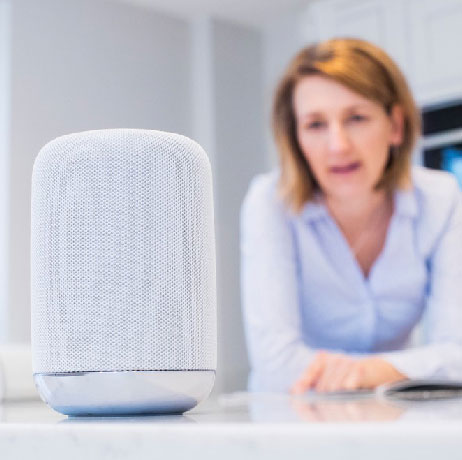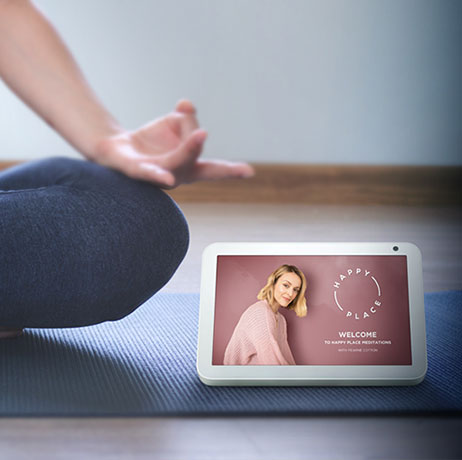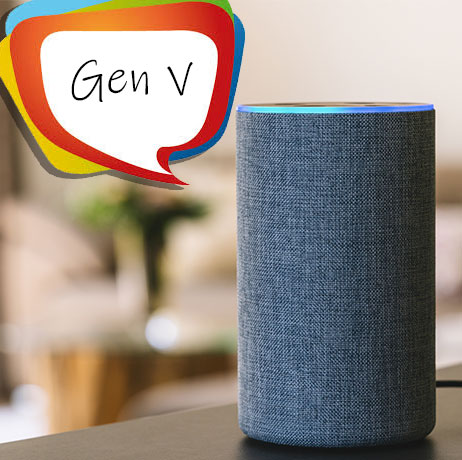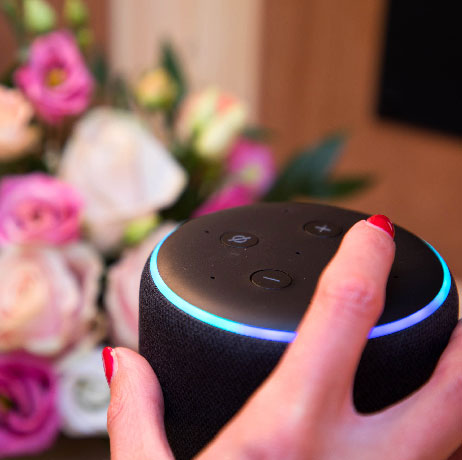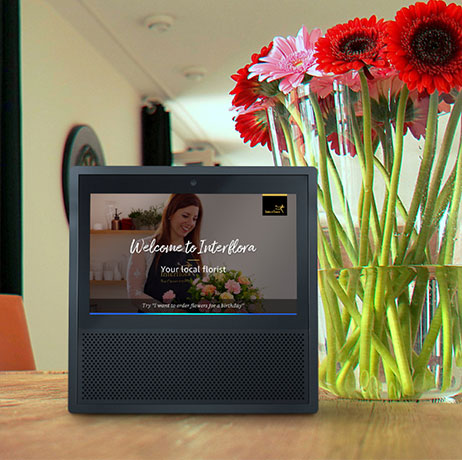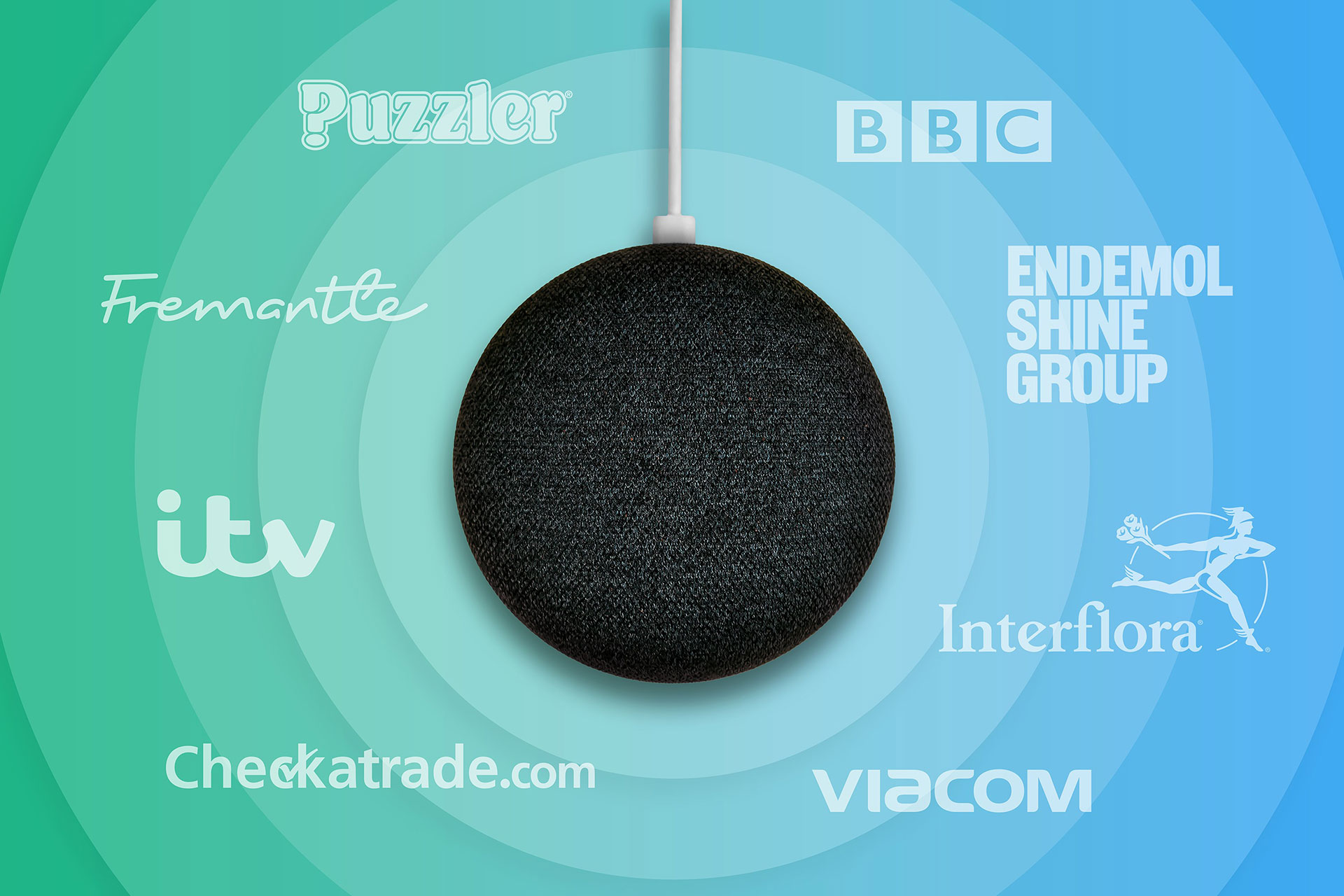
Brand purpose has arguably been the marketing obsession of the last decade. Simon Sinek’s book ‘Start With Why’ and his Ted Talk from 2009 crystallised it for a generation of business leaders and marketers.
Far from being just marketing jargon, successful global businesses such as Unilever, Burger King, Lego and Phillips have all grown and prospered by delivering profit from purpose. The approach has seen Unilever’s ‘Sustainable Living’ brands growing 50 percent faster than the company’s other brands and delivering more than 60 percent of the business’ growth.
We can cite the good, the bad and the ugly (looking at you Pepsi and Kendall Jenner) of brand purpose in action, but for it to work, a brand’s purpose has to touch consumers and impact their lives. You need to activate the purpose; involve your consumers, communicate with them and create interaction with it. This is where voice technology can play a huge part. This fast-evolving technology gives brands the ability to create connection and engagement with their audience through direct two-way conversation.
So how can voice support brands in delivering on their purpose? The answer depends to some extent on what their purpose is but it’s safe to say that whatever the purpose or personality of the brand, there is an opportunity to deliver voice-activated, interactive content which can add value for the consumer and enhance their relationship with the brand.
Entertainment
Some brands, like Disney, exist purely to provide entertainment, joy and happiness to their customers and that’s one area voice is already excelling. Listening to music, playing games and doing a quiz are some of the most popular uses for voice enabled devices. At Vocala we have created a number of hugely popular voice experiences for brands. Our Puzzler skill has brought crosswords to voice and opened up the Puzzler brand to a new audience, while our voice games for ITV and the BBC continue to entertain fans of Pointless, DOND and Tenable long after the TV shows have ended.
Lifestyle
The route to success for many brands is in helping their consumers to be part of a particular lifestyle or movement. Think Nike’s ambition to unite the world through sport or RedBull’s purpose to energise the world. Voice has the potential to support this whether it be through tools to get involved, information or advice. We are seeing more and more brands capitalise on Alexa users’ appetites for health and fitness skills and daily routines. We recently worked with Fearne Cotton’s Happy Place brand to create an Alexa skill featuring daily guided meditations enabled through voice. The Alexa skill helps to deliver on the brand’s purpose of unlocking inner happiness, joy and calm for people by allowing them to escape the distractions associated with phone apps.

Creativity and inspiration
There are brands that see it as their role to stimulate creativity and inspire their consumers whether that be through food, fashion, music or design. The ability to simply ‘ask Alexa’ for a recipe or a recommendation opens up a host of opportunities for brands to connect with consumers around mutual passions and add value for them.
The National Peanut Board of America exists to inspire a love of peanuts amongst the nation and turned to voice to help them do that. We developed The Peanut Butter Jar Alexa Skill, which inspires users with a library of sweet and savoury peanut butter recipes which can all be accessed quickly and conveniently through voice.
Inform and advise
The purpose of some brands is to inform and update by delivering news and stories to their audience. Millions of people now turn to smart speakers and voice assistants as a source of their news, making voice an essential medium for these brands. Alexa Flash Briefings, which are short pre-recorded updates of a few minutes long, are becoming increasingly popular. The fact that they’re quick and customized summaries makes them ideal for delivering timely snippets of information right when the audience might also be doing other things. The BBC, Reuters, ESPN, Reddit and many more household news outlets have a strong presence in voice. From politics to business, science to sport, culture to entertainment, voice has the potential to inform and update on behalf of brands.
Voice for Good
For some, brand purpose has come to mean brands that are doing something beneficial for wider society. While this isn’t appropriate or necessary for all brands, for many it has become a great way to connect with consumers about something they feel passionate about. A survey commissioned by Channel 4 found that 57% of young people believe brands should use their advertising to raise awareness of social or ethical issues.
So, as voice moves from emerging into mainstream its potential to be a force for good is becoming more and more apparent and this opens up opportunities for brands with social purpose. These are just some of the ways voice can be leveraged as a force for good.
Reducing screen time
It’s pretty universally accepted now that as a society we use smart phones too much and reducing our reliance on them is a good idea. Research has shown links between use of devices and various mental health problems and a new phenomenon of Phone Separation Anxiety has been identified. But the notion if simply reducing screen time is problematic when the use of technology is not only ubiquitous but often necessary.
Voice technology allows us to access all the benefits of a connected lifestyle without the need to be heads down and physically attached to a device. Voice users can access information, listen to music and play games all without looking at a screen, tapping or swiping. With screen time a major issue for most parents, this is an area that family and children’s brands in particular could really capitalise on.
Making social connections
Voice offers a multitude of ways to foster greater connections between families and within communities. There is the obvious advantage of easily being able to make calls and ‘drop in’ on friends and relatives. Studies, particularly amongst older people, are showing that the use of voice devices can help reduce loneliness and feelings of isolation.
Beyond that, games, quizzes and trivia via voice offer a great way for people to connect. Not only are they fun, mostly free and easy to get started (with no need for boards or reading instructions), the beauty is that they spark conversation, promote family bonding and create lasting memories.
For families with young children the voice platform can provide a fantastic way to promote and encourage conversation. We recently designed a voice-led experience which is aimed solely at encouraging families to spend time together, to stimulate conversation and to help each other share details about their day.
Teaching and training
Whatever the age or stage in life voice has huge potential to help people learn new things, educate themselves, complete tests and ‘train the brain’. For children it offers a fun, interactive and engaging way for them to learn, away from tablets and computers. For adults the multi-tasking capabilities are key, meaning it’s possible to swot-up ahead of a test while making dinner or doing the laundry. Our Driving Test Theory Alexa skill has been popular in allowing people to prep for the test in a whole new way. For older people, where ‘brain training’ has been proven to be helpful in slowing cognitive decline and memory loss, being able to do quizzes, trivia games and puzzles just via voice can be highly beneficial. Brands that have an interest in educating and informing their consumers, whatever the target audience, can look to voice to support them in activating that purpose.
Helping the visually impaired
The impact of mainstream voice technology on the visually impaired has been massively significant. Although software such as screen readers has been available for some time, devices like Amazon Echo allow the visually impaired to access information much quicker and provide a game-changing level of accessibility and independence. The Royal National Institute of Blind People has recently teamed up with Amazon Alexa to make accessing the internet easier for people with sight loss. They have an ambition to improve the accessibility for upwards of 2 million people in the UK who are blind or partially sighted.
Beyond supporting with daily tasks and productivity, voice technology can help blind people to access games and puzzles without assistance. Robin Christopherson, MBE, Head of Digital Inclusion at AbilityNet had this to say about our Puzzler Crossword of the Day skill.
“Being blind, it’s never been possible for me to sit down and enjoy a fiendish word puzzle without some sighted assistance – until now, that is. Thanks to Puzzler, the Alexa skill that brings crosswords to everyone, every day, I can now have a crack at the daily free and fuller, premium puzzles without breaking a sweat.”
There is an abundance of research into brand purpose which tells us that consumers are seeking out brands that help them live a more purposeful life, whatever that looks like for them. What’s more, they’re willing to pay more for them. But it’s not enough to just discover and articulate your ‘why’. For brands that are clear on what their purpose is, the next step is to meaningfully activate it, communicate it and use it to connect. For brands that really do want to give a voice to their brand purpose, voice technology could play a key role in that strategy.
-
Written by:
Rob Stanbridge
-
Posted on:
18-02-2020
-
Tags:
#Alexa Skills #opinion #brands #voice-for-good #voice




